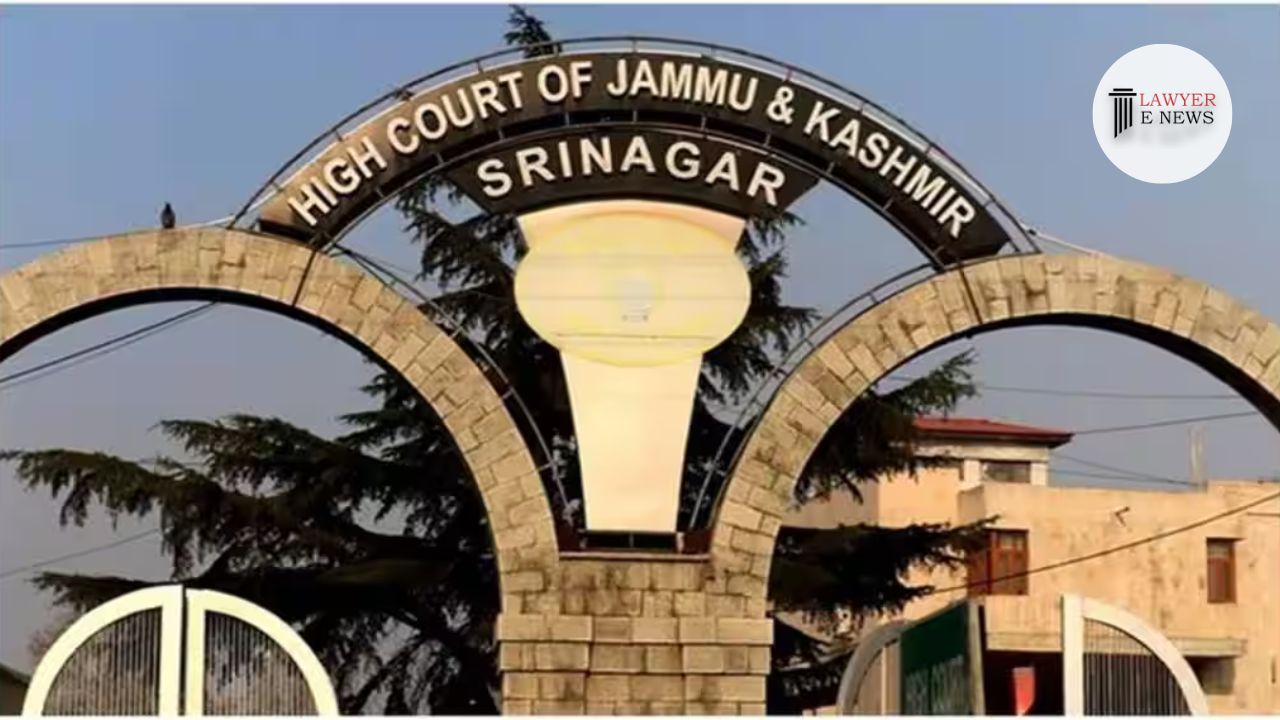-
by Admin
15 February 2026 2:36 AM



Proceedings Continue Against Husband and Parents, Court Emphasizes Need for Specific Accusations
The High Court of Jammu & Kashmir and Ladakh at Jammu has quashed an FIR filed against several members of a family accused of dowry harassment, highlighting the necessity of specific allegations to sustain such charges. The judgment, delivered by Justice Rajnesh Oswal, emphasized the importance of concrete evidence and the dangers of implicating distant relatives without detailed accusations.
The case originated from an FIR (No. 0022/2023) filed by Yasmeen Akhter, who alleged that her husband, Sharaz Ahmed, and his family subjected her to dowry harassment and domestic violence. The FIR named her husband, his parents, siblings, and other distant relatives. Yasmeen claimed that her marriage to Sharaz was met with hostility from his family due to it being a love marriage, and that she faced continuous abuse and dowry demands. Despite multiple interventions by community members, Yasmeen alleged persistent harassment, leading to her filing the complaint.
Necessity of Specific Allegations:
Justice Rajnesh Oswal noted the importance of clear, specific allegations in cases involving dowry harassment and domestic violence. "There must be specific allegations against the relatives of the husband to warrant their prosecution for commission of offence under Section 498-A," the judgment stated, referencing several Supreme Court precedents cautioning against the blanket inclusion of family members without distinct and corroborated claims.
Assessment of the Case Against Relatives
The court found that while the complainant, Yasmeen Akhter, provided detailed allegations against her husband and his parents, the accusations against other family members, including those living separately, were general and lacked necessary detail. "The general, bald and vague allegations have been leveled by the respondent No. 2 against the petitioner Nos. 1 & 2 and petitioner Nos. 4 to 7," the judgment observed, leading to the quashing of the FIR for these relatives.
The judgment extensively cited Supreme Court rulings to underscore the principle that mere familial connection does not justify prosecution without specific allegations. In particular, it referenced Arnesh Kumar v. State of Bihar (2014), K. Subba Rao v. State of Telangana (2018), Kahkashan Kausar v. State of Bihar (2022), and Abhishek v. State of M.P. (2023) to highlight the judiciary's stance on preventing misuse of Section 498-A IPC by ensuring that relatives are not prosecuted based on vague claims.
Justice Oswal remarked, "Continuance of the proceedings against petitioner Nos. 1 & 2 shall amount to abuse of process of law." He further emphasized, "The relatives of the husband should not be roped in on the basis of omnibus allegations unless specific instances of their involvement in the crime are made out."
The High Court's decision to quash the FIR against the distant relatives while allowing proceedings against the husband and his parents to continue serves as a crucial reminder of the judiciary's commitment to fair trial principles. This judgment reinforces the need for precise and substantiated allegations in dowry harassment cases, aiming to prevent the misuse of legal provisions and ensuring that only those with clear and specific accusations face prosecution.
Date of Decision: 31st May 2024
Manzoor Hussain, Ors. VS Union Territory of Jammu and Kashmir,
[gview file="https://lawyerenews.com/wp-content/uploads/2024/06/J^0J-31-May-2024-Dowry-Quashing-Crim.pdf"]
